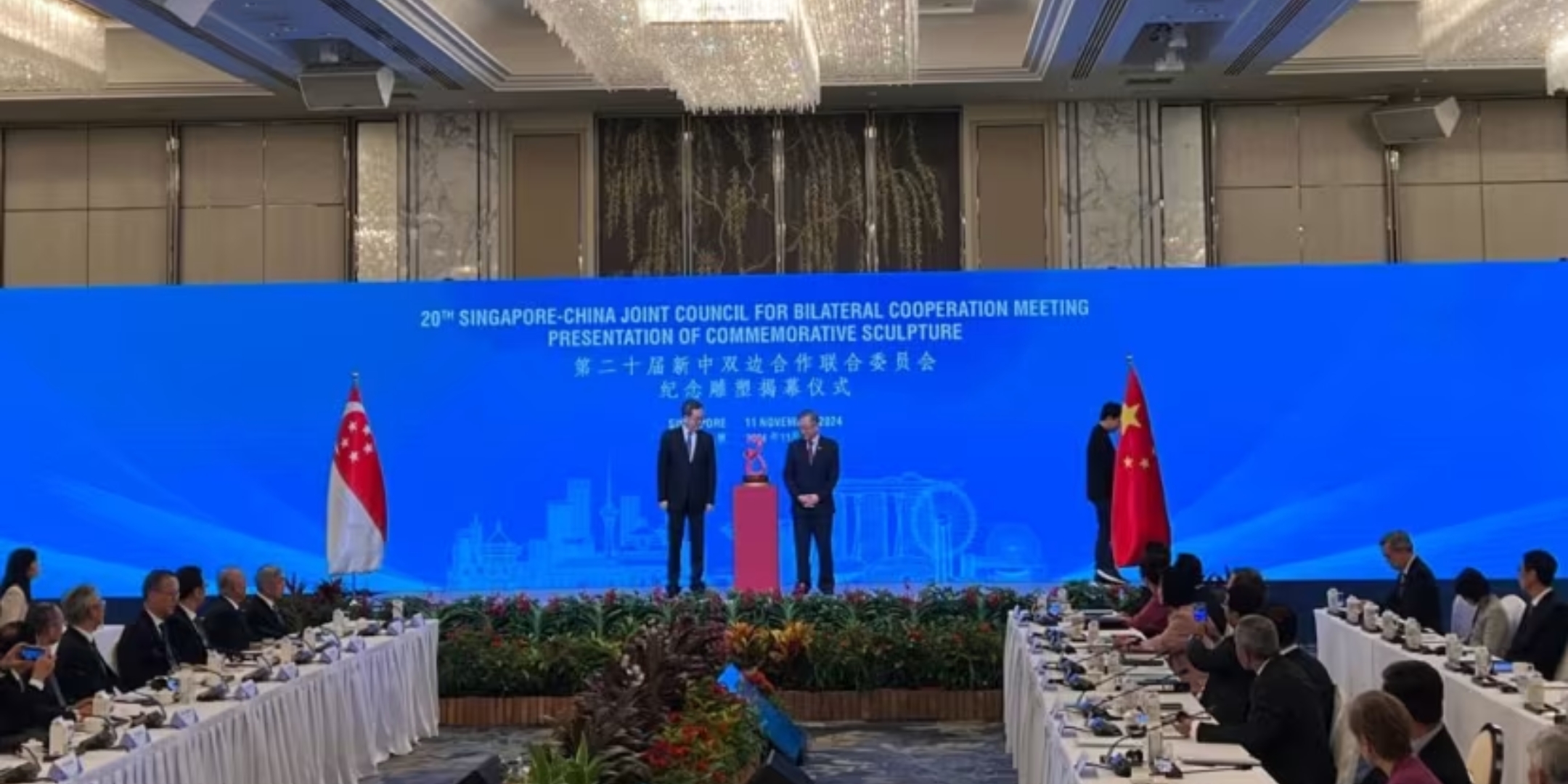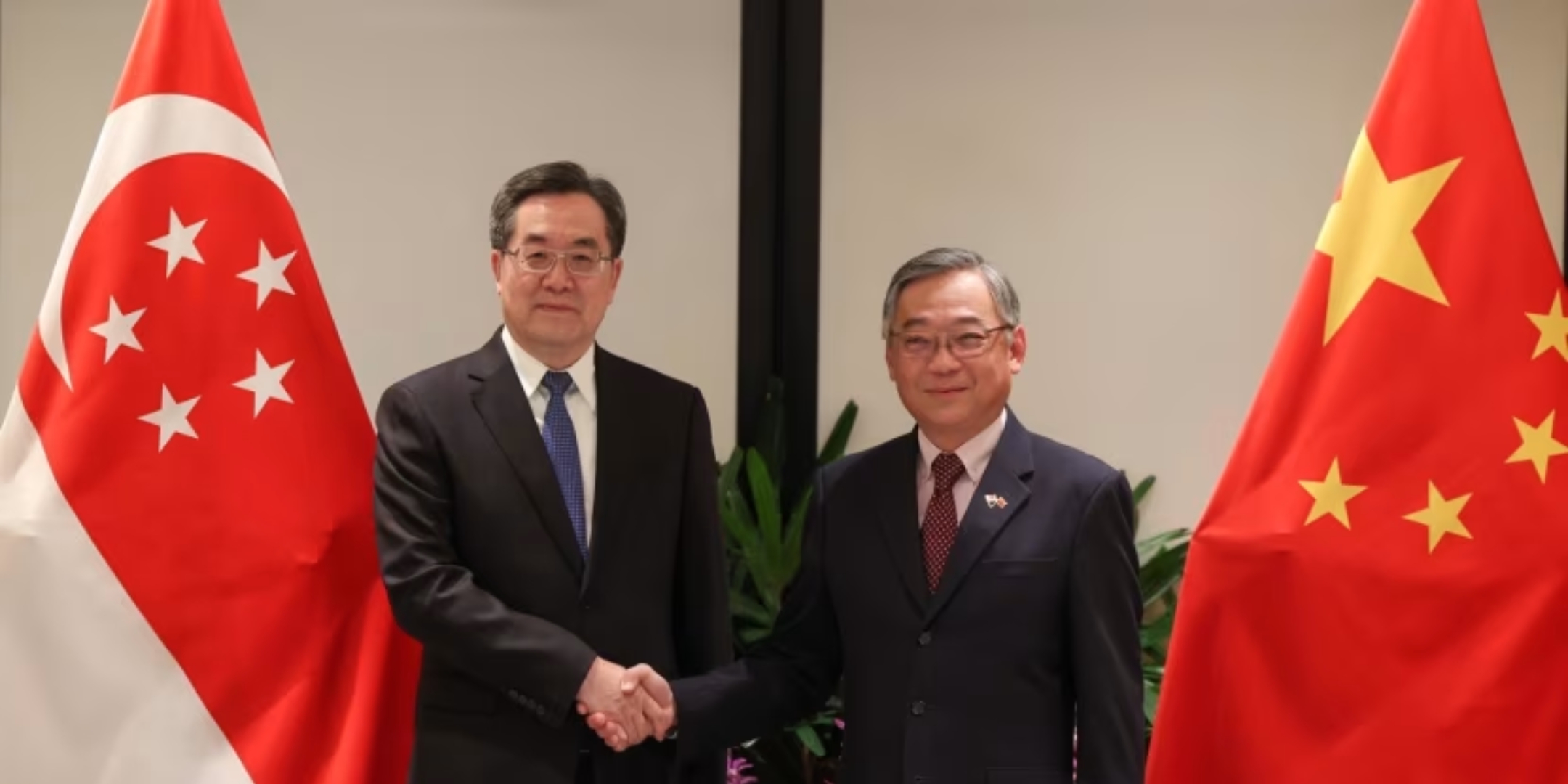Singapore and China sign 25 agreements at annual top-level bilateral meeting to boost cooperation

Source: CNA
Singapore and China have signed 25 agreements at their annual apex meeting, boosting cooperation in areas like trade, finance and maritime as they strengthen ties amid a troubled geopolitical climate.
The slew of memoranda of understanding (MOUs) and agreements - up from 24 last year and the most in recent years - was unveiled on Monday (Nov 11) at the 20th Joint Council for Bilateral Cooperation (JCBC) meeting, held at the Shangri-La Hotel in Singapore.
Singapore Deputy Prime Minister Gan Kim Yong and visiting Chinese Vice Premier Ding Xuexiang co-chaired the meeting, which is the highest-level annual forum between China and Singapore.
Held alternately between the two countries, it reviews the substantive collaboration between them and charts the direction of cooperation.
“From our exchanges, it is clear that the upgrade of our relations last year … has given our bilateral agenda a renewed focus, one that is more ambitious and forward-looking,” said Mr Gan.
Singapore and China elevated bilateral ties last year to an “All-Round High-Quality Future-Oriented Partnership”, following a meeting between Singapore's then-Prime Minister Lee Hsien Loong and Chinese President Xi Jinping in Beijing.
Similarly, Mr Ding acknowledged the bilateral progress made over the years.
“China is willing to work with Singapore to further implement the important consensus reached by our leaders, focusing on comprehensive, high-quality, and forward-looking cooperation,” he said.
“We will continue to explore new connection points and areas of growth, bringing greater benefits to the people of both countries."
This was the first time Mr Gan - who is also minister for trade and industry - co-chaired the JCBC and related joint steering council meetings for the three Singapore-China government-to-government projects.
These projects are Suzhou Industrial Park, Tianjin Eco-City and the Chongqing Connectivity Initiative.

Firming Up Cooperation Amid Geopolitical Uncertainty
The Singapore-China relationship is built on a basis of mutual interests and shared beliefs of cooperation, Mr Gan noted when speaking to Singapore media after the JCBC meeting.
He highlighted the need to take a longer-term view, pointing out that many of the agreements made during the forum will take time to implement and for the benefits to be realised.
“Connectivity is one example. We'll continue to build and strengthen the connectivity between Singapore and China, and to encourage China businesses to use Singapore as a gateway to the Asia, Southeast Asian markets, ASEAN market,” Mr Gan told reporters.
“This (will) require many years of hard work … to be able to bear fruit.”
Mr Gan was also asked how Singapore plans to navigate its trade strategy with China amid heightened geopolitical tensions and the tariff threats made by US President-elect Donald Trump.
While stressing the need to monitor how matters play out first, Mr Gan warned that the outlook and operating environment are likely to remain “very challenging” and continue to have “significant uncertainties”.
“From Singapore's point of view, being a small and open economy, we want to look forward to a more stable and secure relationship, and a constructive relationship between China and the US,” he told reporters.
“Therefore we will encourage the US and China to continue to have dialogue, to continue to find ways to work together even as they compete with one another.”
Against this backdrop, Mr Gan emphasised that Singapore businesses and leaders need to remain nimble and flexible. “(We need) to be prepared to adjust our strategy even as the global environment evolves,” he said.
